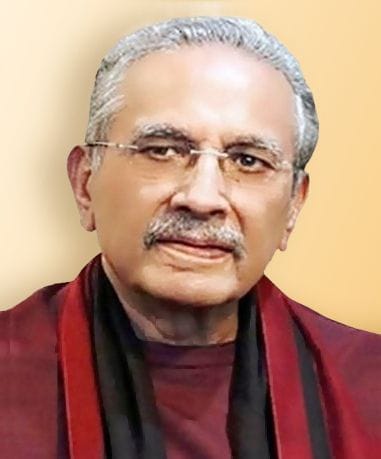Taxing solar to obstruct energy self-sufficiency to favour mafias.
Imposing solar tax will hit forex reserves, fuel inflation, shrink investment.
By:Tariq Khattak
ISLAMABAD:Prominent economist and business leader Dr. Shahid Rasheed Butt has strongly condemned the federal government’s recent decision to impose taxation on solar panels, describing it as a regressive policy that undermines national interest, economic reform, and public relief.
Speaking at an emergency session with leading traders and industrialists, Dr. Butt termed the move an assault on the transition to renewable energy and a betrayal of the government’s own energy independence goals. He warned that such anti-solar policies will worsen the energy crisis, raise production costs, and discourage both household and commercial adoption of alternative energy solutions.
Electricity prices in Pakistan are already the highest in the region, he said, adding that businesses are operating on razor-thin margins, and the middle class is buckling under soaring bills. Solar energy offered hope. It was a path to affordable, sustainable electricity. Now, that path is being blocked by shortsighted policy.
He criticised the tax imposition as not only economically unsound but also morally indefensible. While developed nations are subsidising solar adoption to achieve climate goals and secure energy independence, Pakistan is doing the exact opposite, he said. “We are taxing a clean, decentralized power source during an economic crisis. This amounts to a form of economic self-harm.”
Dr. Shahid Rasheed Butt warned that such taxation would discourage investment, disrupt net metering systems, and erode public trust in renewable energy policies. “Instead of encouraging households and businesses to generate their own electricity, we are penalising them,” he stated, adding that the damage would be long-term and systemic.
He alleged that the decision reflects the influence of powerful lobbies, including independent power producers (IPPs), oil importers, and the so-called importer mafia. “These groups fear the rise of solar energy because it challenges their profits. The result is a national policy that protects monopolies at the expense of the people,” he said.
Referring to the country’s worsening circular debt, which has reportedly crossed Rs. 3.5 trillion, Dr. Butt questioned the logic of penalising alternative sources of energy that cost the government nothing. “This is private investment in public benefit,” he said. “Why tax it unless you are deliberately trying to block progress?”
He warned that the taxation policy would lead to reduced solar adoption, collapse of local solar markets, and violation of Pakistan’s environmental commitments under international treaties. He urged the government to exempt solar panels and associated equipment from all duties and taxes, thereby encouraging wider adoption.
“If the government genuinely wants to broaden the tax base or raise revenue, it should start with curtailing non-essential spending, elite privileges, and administrative waste,” Dr. Butt suggested. “But punishing citizens who are investing in clean energy, many of whom have sold assets or taken loans, is unjust and economically suicidal.”
He concluded with a strong appeal to policymakers: “Reverse this decision immediately. Make solar energy tax-free for households, small businesses, and agriculture. If we cannot support the public during an energy crisis, we have no right to claim we are working in their interest.”
Dr. Butt’s statement echoes growing public outrage and civil society criticism over the solar tax policy, which many see as a move designed to benefit entrenched commercial interests at the cost of energy justice and national resilience.

